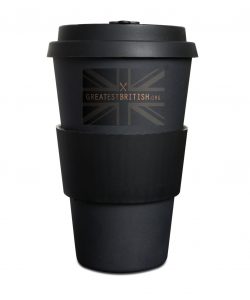Single Use Plastic Free

“With jaw-dropping facts emerging almost daily, we now know that huge quantities of plastic – larger than a rubbish truck – are being dumped into our oceans every minute …” ICSA is already acting through education in our accredited schools and actions at many, cutting right back on single use plastics, with some already at zero!
2018 became known as the year people finally woke up to the problem with plastics. ‘The Blue Planet’ on the BBC narrated by David Attenborough, enlightened viewers on a mass scale demonstrating the shocking size of the disaster happening in our oceans, and the national press followed. The trailblazing ‘Cookery School’ at Little Portland Street in London is a leading light in this area.
The school is long standing member of ICSA and a previous winner of ‘Sustainable Cookery School of the Year’ and expert in sustainability practices. Teaching staff share their knowledge and tips on how we can all make a difference.
Rosalind Rathouse, founder of ‘Cookery School’ at Little Portland Street explains the devastation that plastic has caused. She says: “With jaw-dropping facts emerging almost daily, we now know that huge quantities of plastic – larger than a rubbish truck – are being dumped into our oceans every minute, with 730 tonnes of plastic waste being dumped into the Mediterranean every day! By 2050 there will be more plastic in the sea than fish, by weight. The irony is that the cost to clean up the sea is greater than the profits made by the plastic industry as a whole – what a dystopian economic landscape we’ve created.”
Rosalind acknowledges that consumers are smart enough to know that there should be no new plastics produced, and she is hopeful of seeing an end to single-use plastics. “The recycling of plastic needs to be a closed loop, meaning that the life cycle of a plastic product results in the reincarnation into another product,” she says.
“It’s brilliant to see businesses like Delphis Eco creating the first 100% post-consumer recycled bottle meaning that the entirety of these bottles are from recycled plastics.” Other brands making a stand for sustainability include Harrogate Water – Britain’s oldest bottled water brand – who are using 100% recyclable glass and plastic bottles.
Some leading chefs and restaurateurs have begun to boast their sustainable kitchens with tips such as ensuring they buy the lids for their storage boxes instead of relying on the ubiquitous cling-film. This is a positive step that Rosalind is delighted to see spreading across the UK, and is something that ‘Cookery School’ at Little Portland Street has been doing quietly for years, passing on knowledge and plastic-free tips to everyone who steps through the cookery school doors, and sharing their award winning ethos with other ICSA members to apply and pass on to their students.
“You only need to peep inside our school fridges and freezers to see towers of Pyrex containers brimming with all sorts of additive-free ingredients,” says Rosalind, proudly. “When we make up our mind to change a bad habit, such as doing away with cling film, we use up the stock we have and then are left with a gaping hole. At that point our creativity takes over and we find sustainable solutions. For example, we love 100% recycled aluminium foil – there is no need to mine for the metal, so production creates less waste, while reusing a precious resource.”
Sustainability is simply a way of life at ‘Cookery School’, and it could be applied in domestic kitchens across the nation with great collective impact’, continues Rosalind. “In our office and kitchen we use pencils and not pens; drink out of glass or reusable bottles; work only with suppliers who share our ethos; order produce in bottles and tins, where possible; send back any plastic containers that do make it over the threshold, for reuse; and do not provide any single-use plastic bags to students with left-over food to take home. They can bring and thus recycle their own!’
Article featured in ‘GREATEST BRITISH COOKERY SCHOOLS’ Guide to ICSA. Shop here
 Doing your bit? why not purchase one of our Eco-friendly Bamboo Hot drinks mugs? Shop here
Doing your bit? why not purchase one of our Eco-friendly Bamboo Hot drinks mugs? Shop here

